With Mary Boutros, Sapna Vats and Zana Hunt, Year 2 Team
In 2018, I had the privilege of interviewing three teachers about their work with Year 2 students. They reflected on how early it’s possible for children to view themselves as active citizens in Australian democracy, built on the belief that their voices have power and agency. The discussion began with Mary Boutros pointing out the commonality between how parents and teachers deal with a child’s developmental milestones.
Mary: The parallels between what parents and teachers observe seem only too obvious. Imagine your baby is at the crawling stage. You know that sooner or later the child will take to standing up. When they do they will want to hold onto something, and that, eventually, he or she will walk independently, right? While some parents are anxious about rushing the process, there’s really no need because you know that in most cases children are bound to start walking.
It’s like that with learning in general. When we don’t rush the process, the beauty of it unfolds, revealing to us the child’s enjoyment of learning. There’s no point in giving them ‘answers’. I think some people want that control which dispensing knowledge gives them. They just want to get to the end result.
Zana: That outcome has been reached, woo-hoo.
Mary: If you don’t enjoy the process, then I think that’s why you’re so eager to rush through it, rather than letting the child learn by looking at things from different angles and different perspectives.
Nothing Without Joy
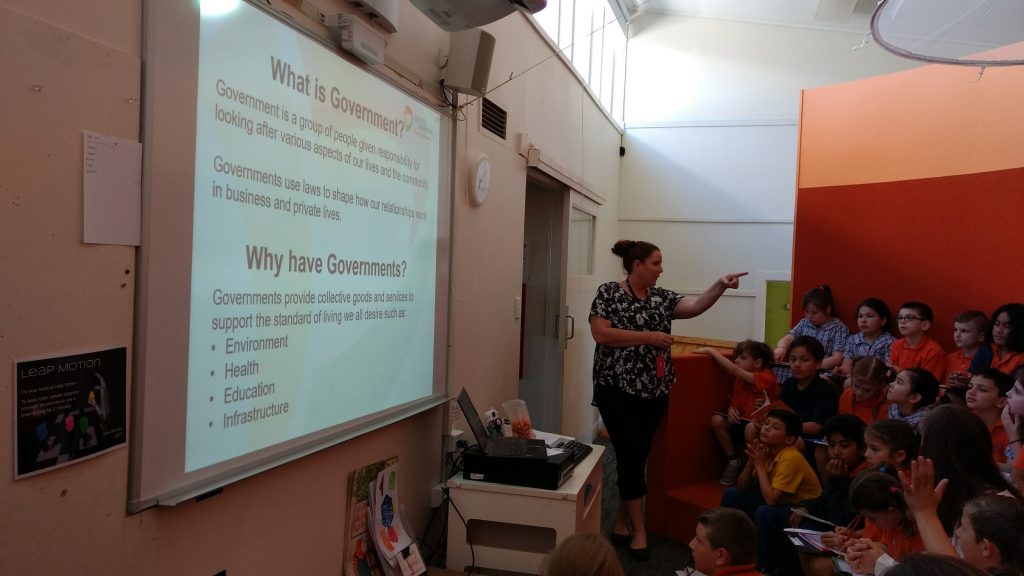
Sapna: I think the sense of joy is part of any project we do at Wooranna. There’s an agreement between us, as teachers, that we want to go with the children on the journey, because there is so much learning in it for us. That’s what I take away from the Class Parliament Project in 2017. There was so much I didn’t know about Parliament, and there was so much learning for me. And I think the rationale behind doing the project was that we wanted to give children a message that they have power.
Mary: Tell children that they are powerful.
Sapna: They are powerful, and we wanted to foster student agency, and develop the ‘student voice’. As a result, when we found out that Year 2 students couldn’t visit to the Parliament on excursion because they were not of age, we took that opportunity to challenge the idea. We wrote to all the relevant ministers so that the children could raise their concern that important ways of learning were denied to them because of their age.
Zana: The children said, “Why can’t we go?” And when they were told that you had to be at least Year x to visit State Parliament, they thought it was ridiculous, that just because they were of a certain age, they couldn’t go.
There’s something about being Wooranna Park
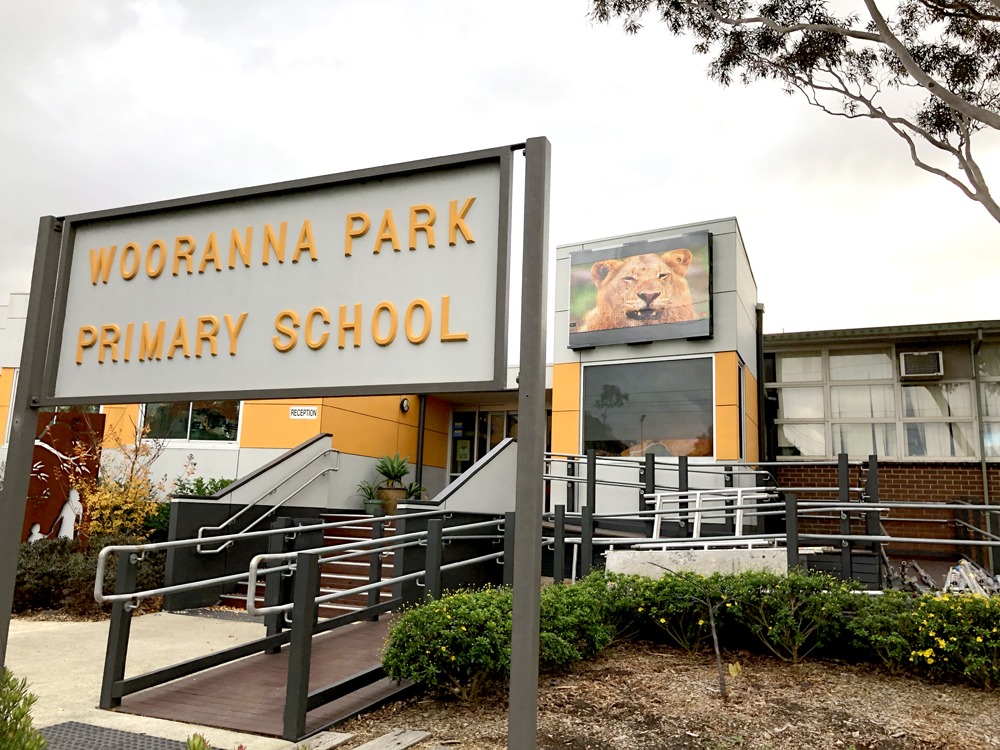
Mary: But there’s another essential point. As teachers, we organize excursions, so when it’s no longer possible to go somewhere we normally just announce to the kids that we can’t go, end of story… done. But at Wooranna, where we empower teachers and students…
Sapna: And parents.
Mary: And parents… you have a community that is willing to work through a problem together. So, it was as a community that we went, ‘Well, that can’t be! It can’t just stop there! What could we do to solve this problem?’ Whereas I know a teacher friend in another school when she couldn’t go on her planned excursion, she had to change the project. She had to rearrange things, and that was it, that was the end of it.
Zana: I think at Wooranna we are always thinking about the learning opportunity, and what Mary and Sapna recognized, by listening to the kids, was that learning opportunity.
Sapna: Yes, we saw the opportunity in all its manifestations. We could learn about creating persuasive texts, so we could try to convince important people, to change their views, right? So we wrote persuasive letters, and we received responses from not only one minister but from everyone we wrote to.
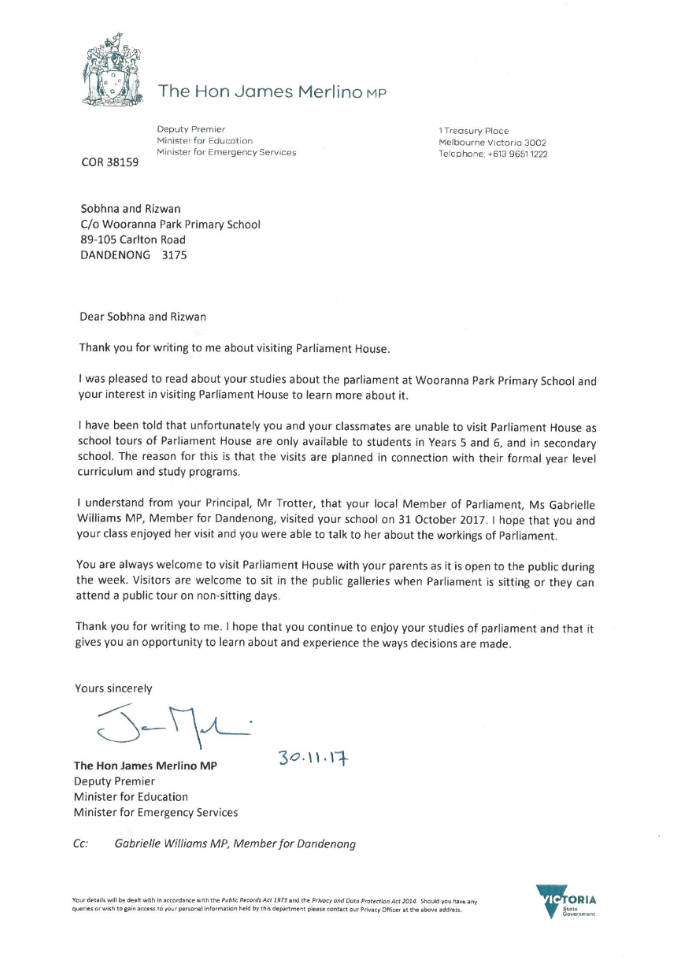
Co-learning with our students
Mary: We worked collaboratively, every step of the way. The children would say to us, “Who do we write to?” And Sapna and I would look at each other and go, “I don’t know who we should write to. Who do we write to?” And so we would find out: the kids would go and research, we would go and do the same.
Zana: That’s really the definition of co-learning. Teachers not just being the holders of all knowledge. You put yourselves in the same position as those kids.
Mary: There were pages and pages of ministers. Okay, let’s sit down with the kids. Which ones do we write to? Okay, well this minister was the secretary of something. Okay, well, let’s write to that one.
Sapna: The whole time we are modelling how we must remain focused on ‘why are we writing to them?’
What does your committee mean to you?
Sapna: We started sending some children to Years Five/ Six Class Parliament in order to observe and make notes. Then, we formed committees based on the senior school Class Parliament structure- the Civics and Citizenship committee, the ICT Committee, ICT and Maths, and the Wellbeing Committee. We placed key questions regarding what they meant, and what things would be involved. We gave children a rationale for and an opportunity to choose which committee they would like to be a part of, based on their own passions and interests. They organized a Maths and ICT day, while Civics and Citizenship committee worked towards creating a Nude Food Day.
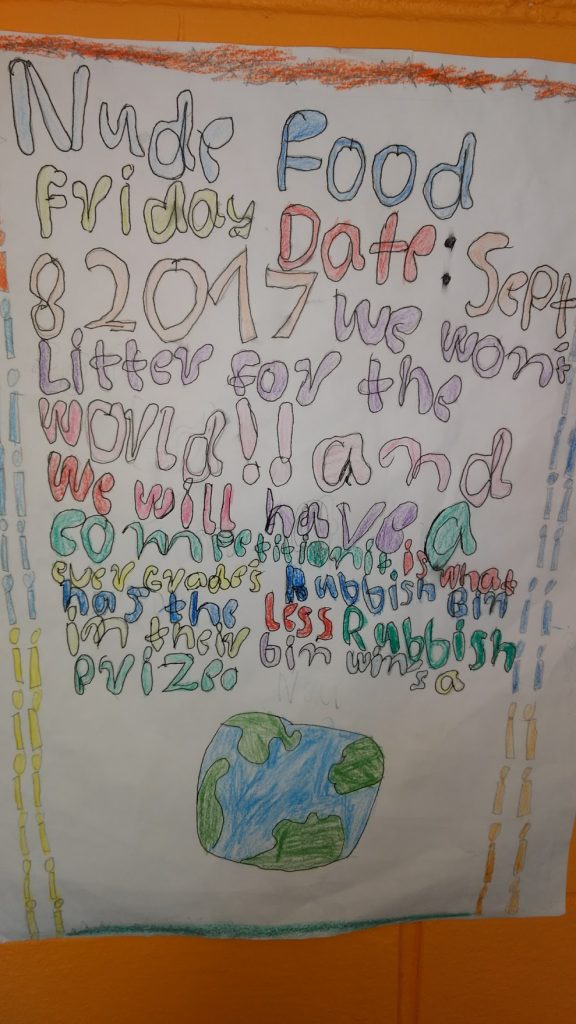
Mary: The Wellbeing Committee worked on a Family Day.
Sapna: We had a leadership ceremony, in which we invited the mayor, who came and gave the badges to all the children. So, that was the start of it, and then we found out that we couldn’t go to the Parliament. That’s when the direction of our project changed. All because of Question Time, where the MPs get very rough.
Mary: It’s inappropriate, they said, for children.
Sapna: They actually said, ‘It’s not for young children. We only offer it to children from Years Five/Six.’
Mary: My response was ‘No, I don’t think that’s right.’
Zana: Children are watching arguments and opinionated talk on TV, on Channel Two!
Sapna: So what happened after that was we wrote and posted letters. We took children to post letters, and they wrote letters to different ministers. Daniel Andrews, James Merlino, and our local MP, Gabrielle Williams. We got an instant reply from her, and then she said she would like to come and talk to us. So she visited us, and children asked her questions about her role in the Parliament, and why we couldn’t go. So she explained a little bit.
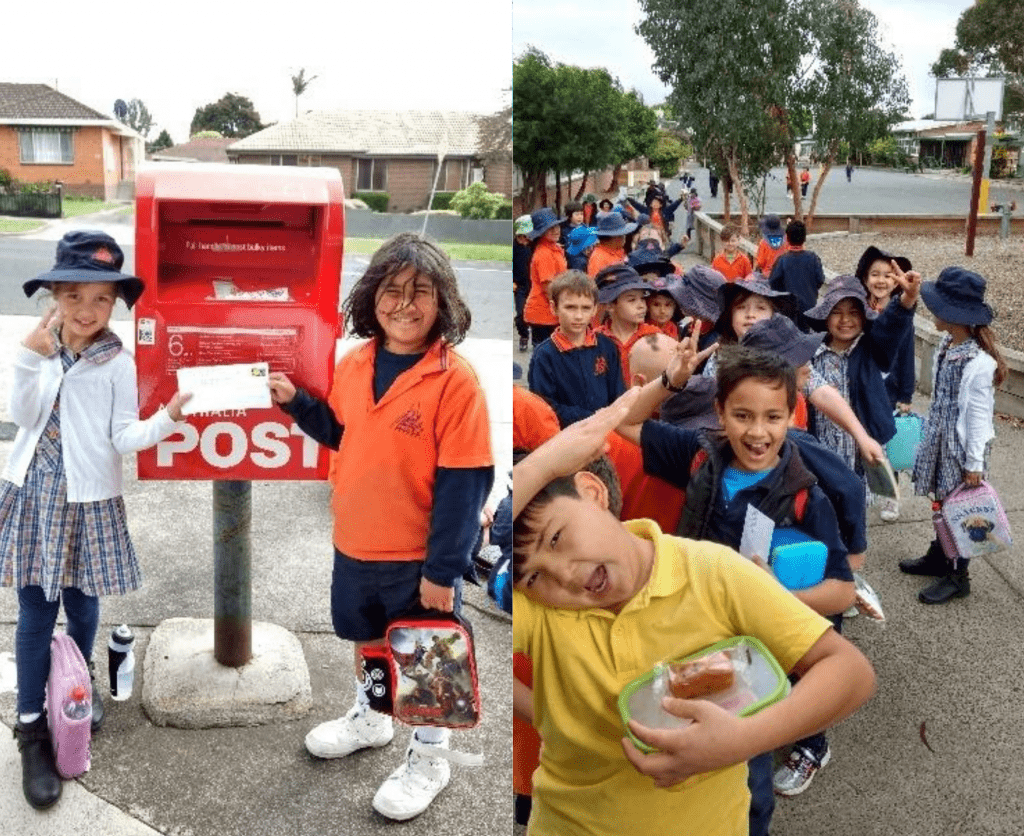
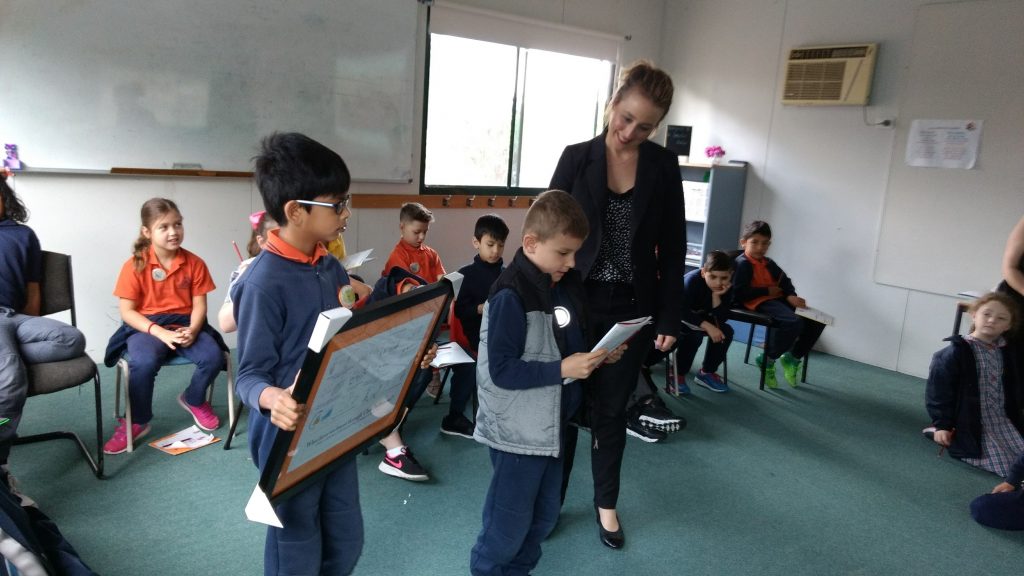
Mary: They actually ran a Parliament with her. She said she would take our case forward. So we needed to write a petition.
Mary: She gave us recommendations on what to do.
Sapna: We got children, family, and every staff member involved in signing up the petition. So children learned how to write a petition.
Mary: There was a format.
Sapna: This is how you write a petition. Mary designed the petition with the children, and they walked around the school getting people to sign the petition. When we talked about it on Family Open Night, we had lots and lots of people sign up for the petition. Mary sent it to Gabrielle, and she presented our case on our behalf in the Parliament.
Mary: And we have a video of it. And it got written in the Hansard officially as well.
Sapna: Then two weeks ago, Mary got an email saying that that petition has been approved.
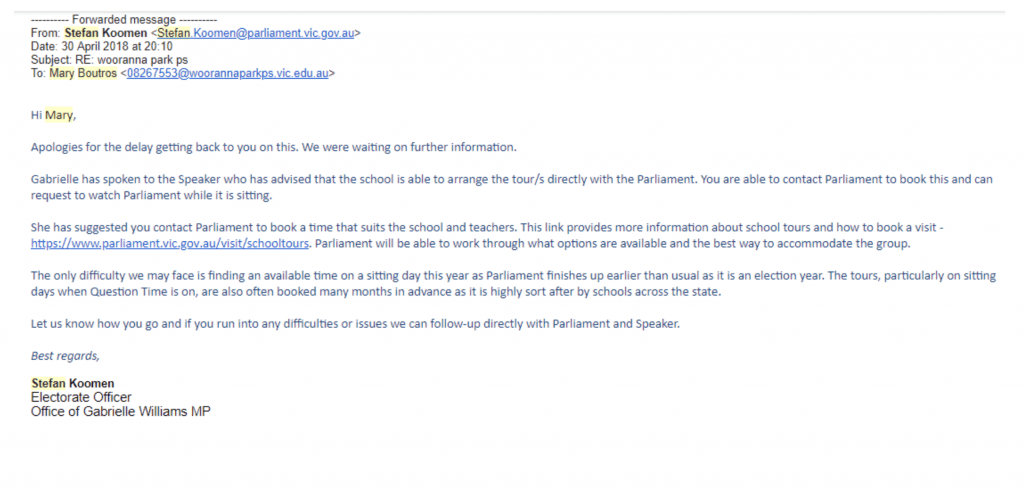
Sapna: Some of the stuff gets lost, translating from one year to the other. But Mary had her first term off, even though she had the same children for next year with another cohort, and something was being trialed at school, which didn’t work, so we don’t have those children.
Mary: It unsettled all the kids and stuff, being a Grade Two, Three group. Yeah.
Zana: But the thing is, pedagogically…
Sapna: It hasn’t been celebrated enough with those children, and I don’t think they have comprehended the power…
Mary: Of what they’ve done.
Zana: And I think it’s important that they know we think it’s important, as well.
Covering The Work
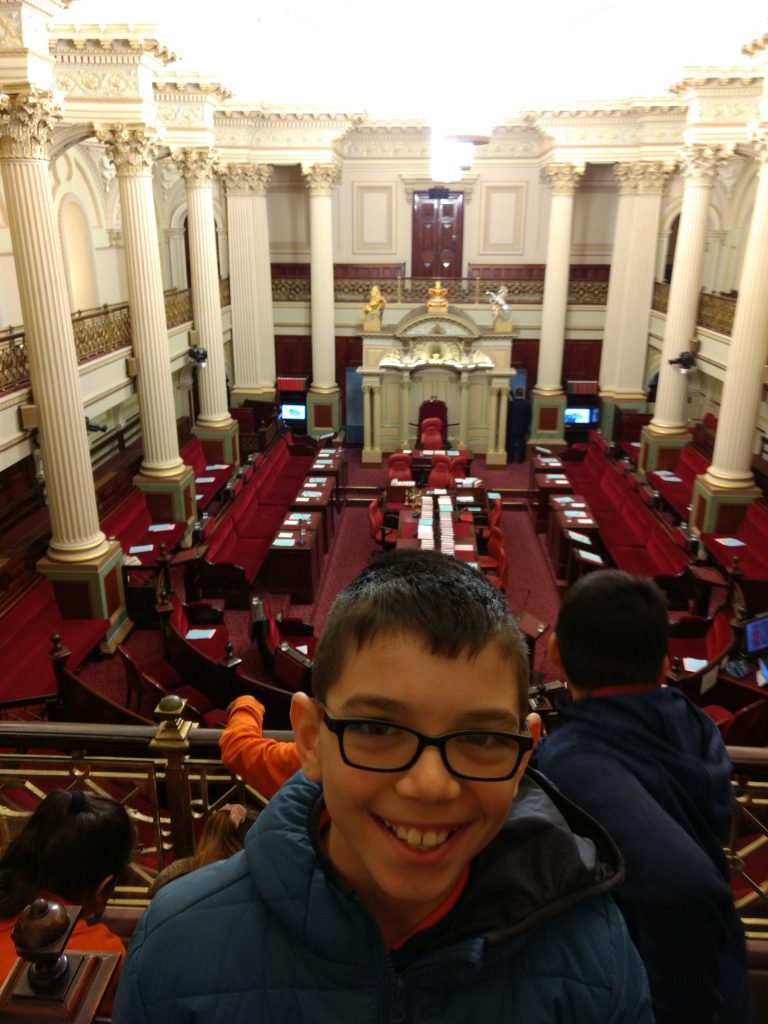
Zana: We always try and make sure that one teacher from the previous year goes up with that cohort of children.
Mary: That’s why I’m in Grade Two again.
Zana: So that gives you a bit more of a piece to the puzzle, right? So that there’s a continuation of relationship and ideas, so there’s an idea of cross-pollination, right? And giving children the opportunity to continue, if that’s what comes up, right?
Mary: You’ve gotta probe it.
Sapna: And that’s what the leadership team showed last year, too, by keeping Mary in there. But now, it’s changed, so Mary doesn’t have those children anymore because they’ve gone to Year Three.
Mary: Yeah. Didn’t work out.
Zana: Didn’t work out.
Mary: But that’s okay. We’ll revisit it when things are settled. It’s been difficult. People often ask us, “How do you know you’ve covered learning outcome?” You hear this all the time. But when we review the things we complete within this project, we not only covered the Year Two curriculum, we cover aspects of Year Three and Four. The amount of maths that came out of it of the Class Parliament project was phenomenal.
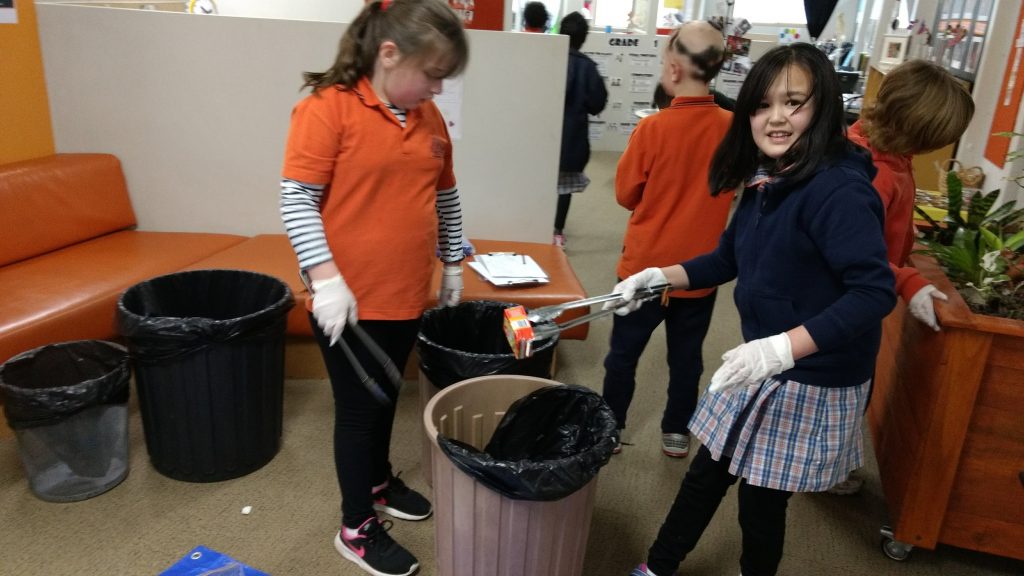
Zana: And the critical thinking, creativity, and language.
Mary: And the statistics, yeah.
Zana: There is no boundary to the learning.
Sapna: And actually, I think it goes back to last year’s project on magic. I had the same children, I’ve documented that project. It highlights all the learning and all the possibilities. We took them deeper, that magic actually is not just what you see. You have magic in yourself…sometimes a smile could be magic. So we connected ourselves with an organization called Blessing Bags which collects items for the homeless. The children wrote letters to their families, and staff members asking for donations. So we made Blessing Bags and we gave them to that organization. And another one was ‘Magic for Animals’, so we baked cupcakes for RSPCA Cupcake Day. So we raised about $700 for them. Another aspect of magic was the creation of seed balls with clay and seeds, and we handed it out to families.
Zana: But we dealt with key questions about where do you see magic in your life? Or how do you receive magic in your life?
Sapna: So they had that experience from the previous project, that they have the power to reach out to communities.
Zana: It wasn’t just the literal change but a deeper thing. I can change. I can bring the change. I have the power to affect change. To influence.
Sapna: They knew who they could they ask for donations: parents, or the teachers. They could write to people.
Zana: Didn’t we have one child asking Mr Trotter for 50 dollars. Mr. Trotter we’re building a HPV, a Human Powered Vehicle and we need money for that.” So he just took $50 from his wallet and he gave it to them.
Strengths In A Teaching Team
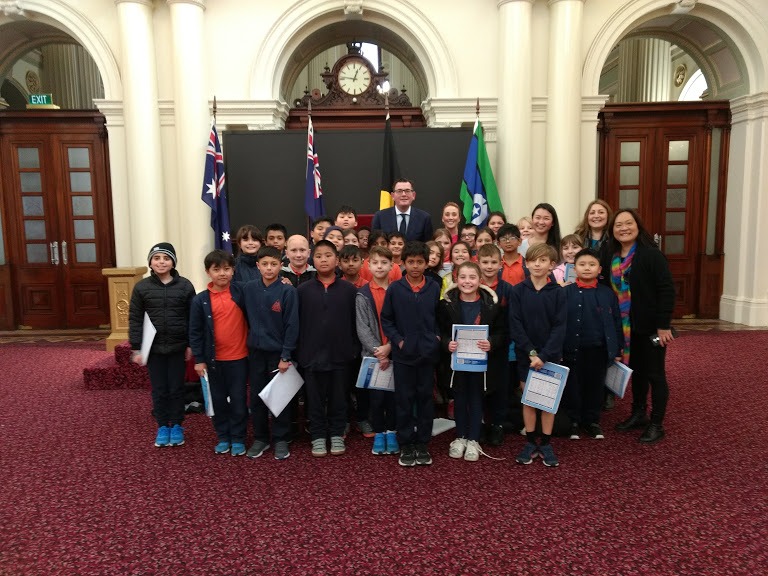
Mary: But that’s the thing, like everyone in the team has strengths. Sapna’s really good at documentation. And so she will pick up on things that the kids have done.
Zana: The documentation is the story of the project.
Mary: And then, like there was something that a kid would draw, and then she would bring it to their attention. Or it was a word or a phrase, and then she’d bring it to their attention. Yes. And then they’re sharing their thoughts with each other. And that in itself is a powerful thing.
Sapna: It is very powerful, yeah. And as Zana said, that you know, by sharing their own knowledge, they actually contaminate each other. They spark off each other.
Zana: Or there is discourse, they argue, and we shouldn’t let kids be afraid of arguing or disagreeing.
Mary: My strengths are a mixed bag.
Sapna: Mary is very knowledgeable, you know. I would go to her and ask her things that, you know, I’ve been teaching for 10 years, but there are so many things I still don’t know.
Zana: Mary is a doer?
Sapna: Yeah, and she’s a doer.
Zana: Okay. So she’s a mover and shaker, she’s a doer?
Sapna: Curriculum knowledge and all that knowledge.
Zana: But she’s also got that organizational knowledge. So from the information that Sapna got, she could lay the tracks down.
Mary: I can see where we’re going, and I can see how to get there. But Sapna and Zana make me stop and look at the stuff along the way as well. And that’s why we compliment each other.
Sapna: Zana is amazing. I’ve worked with her this year. But she’s a very deep thinker.
Mary: Zana isn’t afraid to question, she’s not afraid to ask why. Not that Sapna and I are afraid to ask why, but Zana will ask why after you’ve finished asking why.
Zana: I’ll challenge them.
Mary: She’ll challenge us. And she will ask why again and really get you to tell her why.
Sapna: She provokes your thinking. I mean, she’s a thinking provoker. She can annoy people because people are happy sometimes in their own shell.
Mary: Yeah. Why do we have to reevaluate something that’s working well? And I think sometimes it’s in your face a little bit, you know. People aren’t ready to be shocked. And it’s confronting, and so not everyone knows how to cope with that because people just want to get through the day in one piece. If it’s easier not to deal with it, let’s not deal with it. Whereas Zana would say, “No, let’s deal with it head on. Let’s just deal with it. Whether it’s uncomfortable or comfortable, whether it’s going to make you cry or not, let’s go there.” She is that person. But you need that person. You need that person because otherwise, you’re stagnant.
Sapna: You know, we have our disagreements.
Mary: Oh, yeah.
Zana: I’m not afraid of discourse.
Mary: No, we did.
Sapna: But then we get over it and then move on.
Mary: We butted heads a couple of times in fact.
Zana: We did because it’s hard not to, when you’re passionate about something…
Always Connect
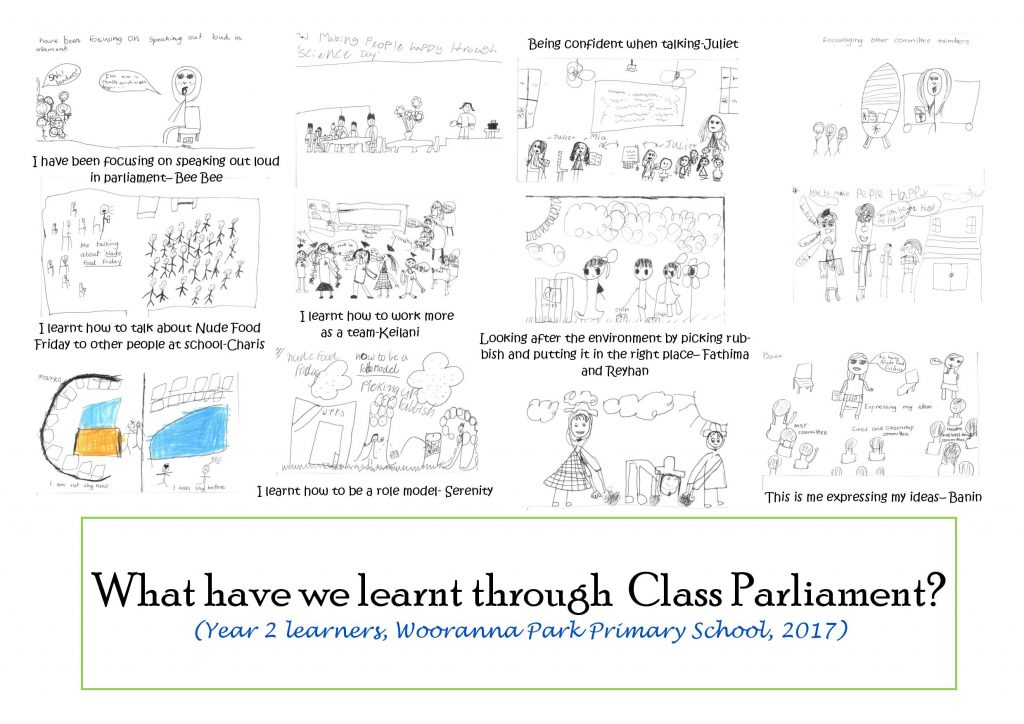
Sapna: I think that when they get to to do Enigma Missions in upper primary, the qualities we’ve foster in Year 2 will make them outstanding.
Mary: The kids do model from us.They’re not afraid to be outspoken, they’re not afraid to challenge things, they’re not afraid to say, “Hey, what do you think about this?”
Sapna: And we did lots of debates. I thought that was amazing.
Mary: We have lots of debates. And they empower them. And they still have a really beautiful relationship with us, you know. The kids know that we’re on their side, they know we will go to any extent to help them. They know that you will be there, and show up, and present something on their behalf.
Zana: It’s a life skill.
Mary: Like a companion.
Mary: I can disagree respectfully, you know, and that’s a life skill for them going forward.
Mary: To know that someone will be there by your side is such a precious thing. And when teachers do that for kids, it takes it to the next level. Like I don’t think people truly understand that security. The kids feel like they can fly knowing that you’re there, that you would do anything with them whenever.
Zana: When Wooranna kids leave here, and go to high school, they’re very good at navigating a high school space because they’re quite autonomous. But also that they ask questions. “Oh, where are you from?” Or, “Uh, okay.” Because our kids aren’t afraid to ask why. And that was one of the complaints about them at a transition meeting. And they said, “Oh, your kids, you know…” We have fostered that they ask teachers, “Why? Why are we doing that?” But that’s something many teachers are uncomfortable with. Our students love the fact that they can navigate the school, they don’t have to worry about moving between spaces, timetables are no problem.
Mary: They want to change this, they want to rearrange this, they want to impose this on their teachers. And we’re say, “Yes!!!!” I even remember you saying to one of them, “Why not? Why not?”

